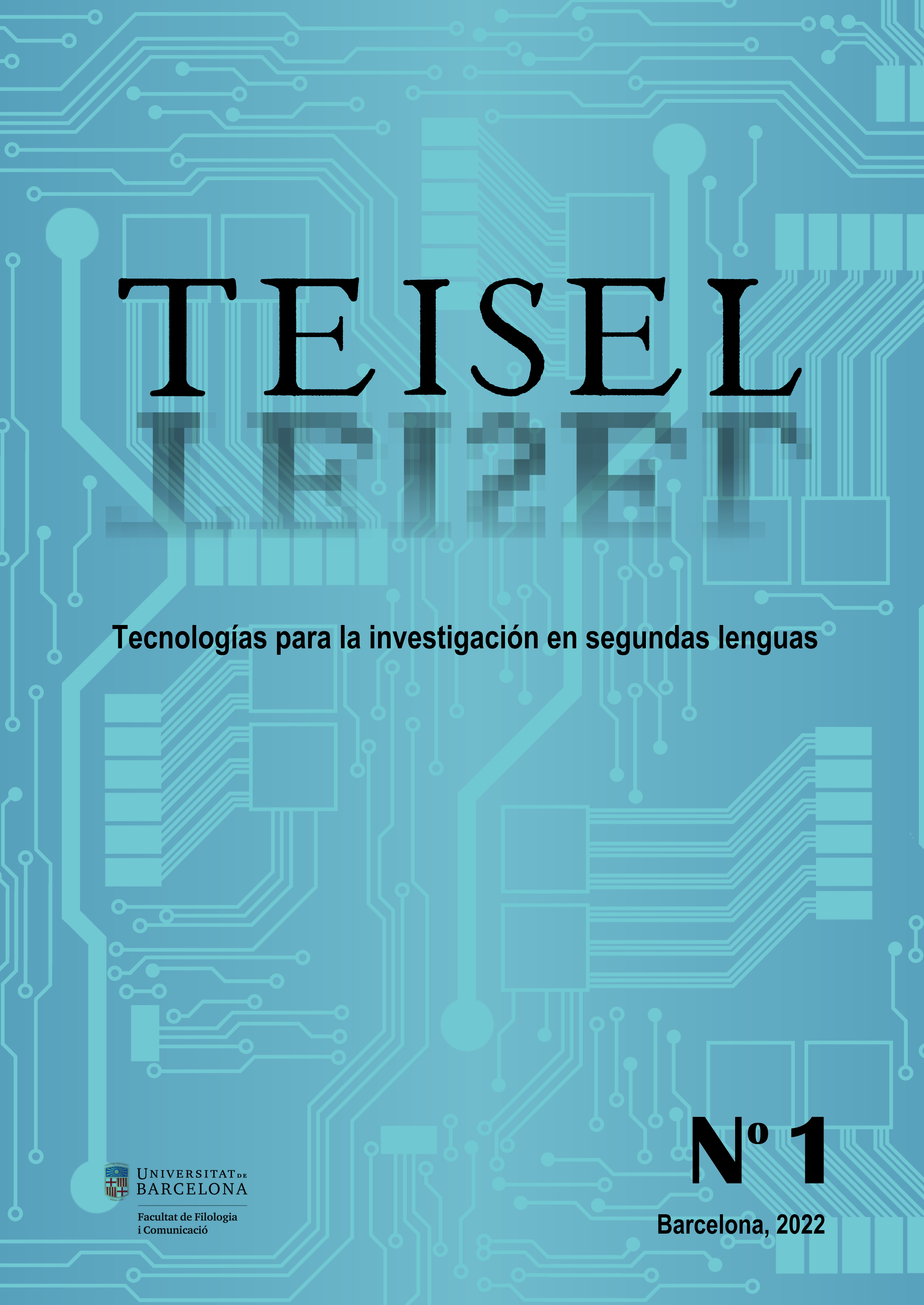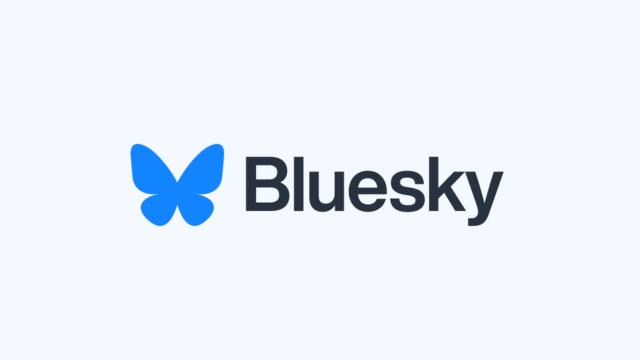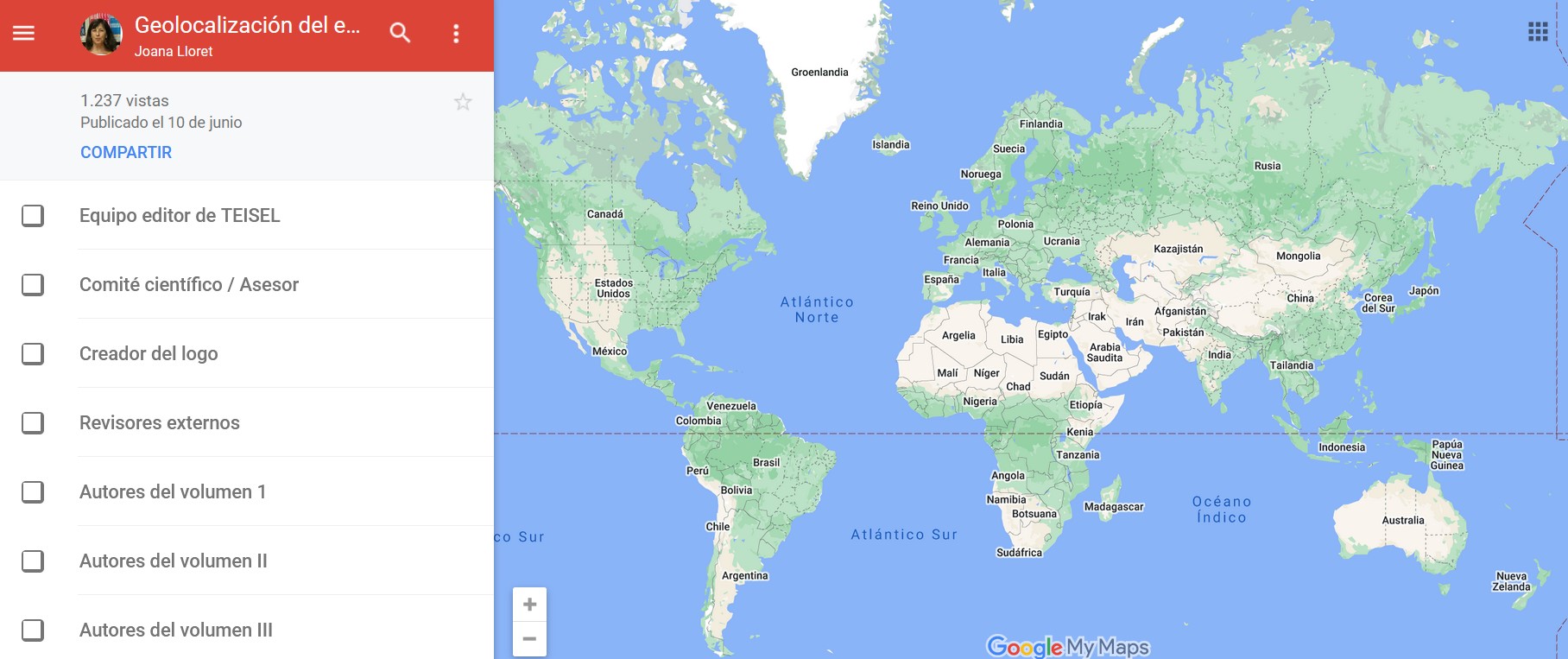Organization, Implementation and Analysis of Telecollaboration in Two Educational Projects
Methodological Challenges and Contributions of MAXQDA Software
DOI:
https://doi.org/10.1344/teisel.v1.38362Palavras-chave:
videoconferencing, telecollaboration, foreign language, secondary school students, intercultural communicationResumo
This article aims to describe how technology can help address the methodological challenges that can be found in the organization and collection of data during telecollaboration among foreign language students. The study investigates the interactions of secondary school learners of English as a foreign language during task-based telecollaboration with secondary school learners of English from a different cultural and linguistic background. The research focuses on two telecollaborative projects in which the same participants from Bulgaria and students from two different schools in Spain participated in synchronous videoconferencing sessions on culture-related topics. Various data collection instruments were used to provide the triangulation of the findings, namely, video recordings of the telecollaborative interactions, interviews, questionnaires, and field observations. The data was processed with the help of MAXQDA software (https://www.maxqda.com). The article reveals numerous challenges for the participating students and teachers, as well as for the investigators in the organization and implementation of telecollaboration in educational projects. These findings are valuable and could help students, teachers, and researchers to predict and solve such challenges before starting an online intercultural exchange project in school setting. This article also presents a case study of using MAXQDA data analysis software to assist qualitative analysis of the data from learners’ interactions in a telecollaborative learning environment. We demonstrate that MAXQDA enables comprehensive and in-depth analysis from multiple perspectives when analyzing students’ online interactions in an intercultural setting. Importantly, MAXQDA permits us to code and analyze audio and video files without transcribing them.
Downloads
Downloads
Publicado
Edição
Seção
Licença
Copyright (c) 2022 Yordanka Chimeva

Este trabalho está licenciado sob uma licença Creative Commons Attribution 4.0 International License.
Com licença Creative Commons v. 4.0


 (Joana Lloret Cantero)
(Joana Lloret Cantero)


